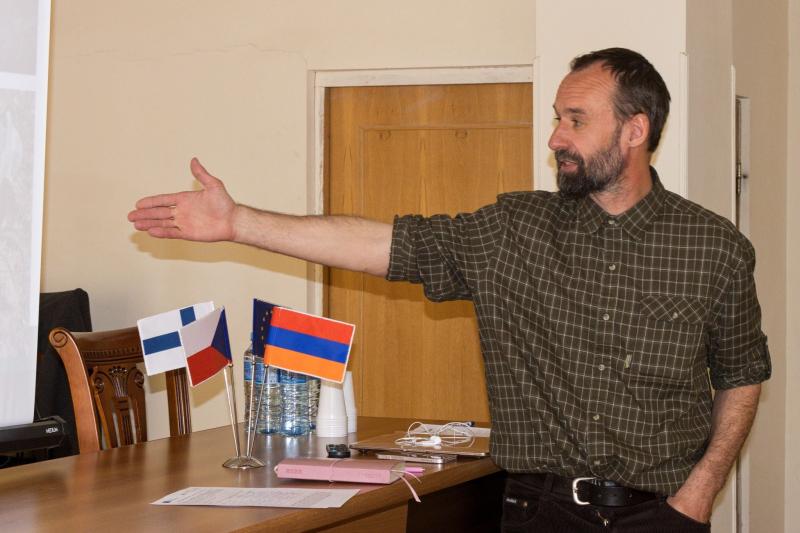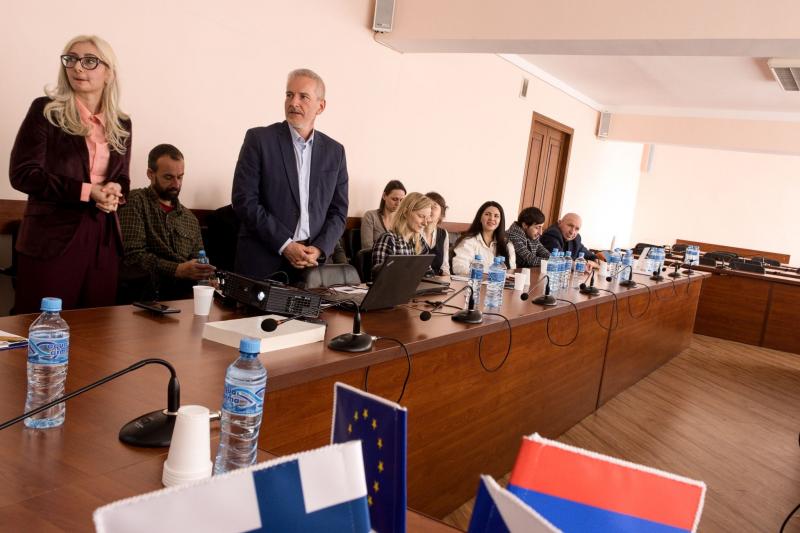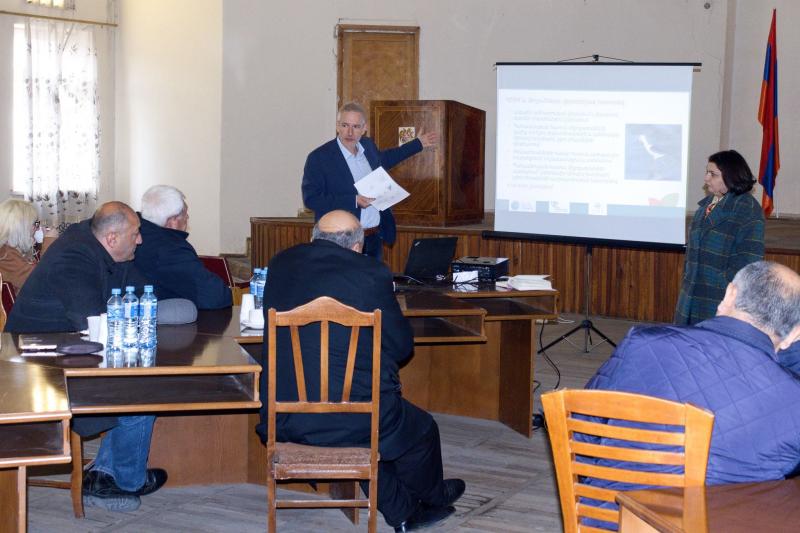Within the framework of the EU Twinning program "Strengthened protection and sustainable use of biodiversity in Armenia in line with European standards", 4 seminars on the convergence of EU directives in the field of nature protection were held in Kotayk, Aragatsotn, Ararat and Armavir regions of Armenia from March 22 to 25. Last year, Armenia ratified the Armenia-EU Comprehensive and Expanded Partnership Agreement, it came into force in 2021 in May. Based on this agreement concluded between Armenia and the EU, the legal system of Armenia should be brought closer to the EU guidelines for the protection of birds and the environment.
The laws "On the Flora" and "On the Fauna", "On specially protected natural territories", as well as relevant decisions, orders and by-laws aimed at protecting biodiversity are in force in the Republic of Armenia. The process of convergence of EU regulations on the protection of birds and the environment will require certain changes in the legislation of the Republic of Armenia, as well as changes in the capabilities of existing institutions. Czech experts propose protection of species and environment included in the Berne Convention, He also signed Armenia and, consequently, accepted the obligation to protect the species and environment listed in the Convention.
"The European Union has developed guidelines on birds and environments as a unified approach to meet the requirements of the Berne Convention in EU member states. Armenia adopted the Berne Convention in 2008 and has already taken steps to establish the most valuable territories in Armenia that need stronger protection. It can also be a starting point for approaching the EU guidelines," said the representative of the Czech Nature Protection Agency, the head of the Twining program, Mr. David Latsina.
Czech experts also presented the need to clarify the list of animal species to be hunted, especially bird species, as well as to ensure strong protection of all species included in the Red Book for all species represented in the Berne Convention. In addition, it is necessary to protect additional territories important for the species and environments established by the Convention in order to ensure their viability.
Despite the fact that species and environment monitoring is carried out by various scientific institutions and public organizations, the definition of methodology and interpretation of the collected data should be carried out by some government body. The data monitoring system should be open, transparent and accessible to the general public, following similar trends in data management in Europe and other countries.
The above-mentioned seminars were organized by the EU Twinning consortium from the Czech Republic, Finland and Armenia within the framework of the program " Strengthened protection and sustainable use of biodiversity in Armenia in line with European standards ". The main goal of the program is to strengthen legislation aimed at protecting biodiversity in Armenia.
The "twinning" program is a well-tested EU tool through which support is provided to government departments cooperating with each other.







